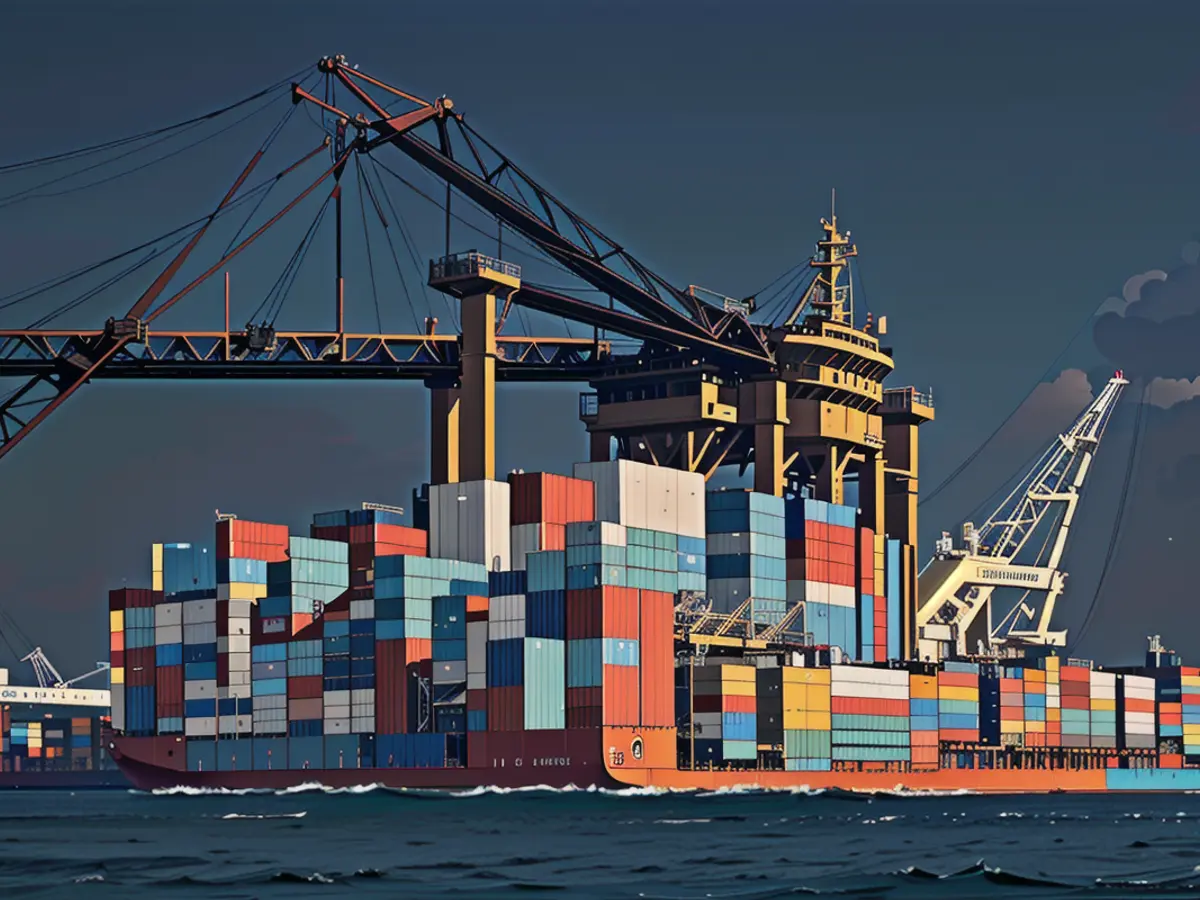Escalating Trade Conflict Causes Capital Flight from U.S. Economy
Shaking Up the Markets: Trump's Trade Agenda and the End of American Exceptionalism
The global financial landscape is feeling some serious tremors under President Donald Trump's trade policies, casting doubt on the once unchallenged allure of US investment. Trump's tariffs have accelerated the decline of US exceptionalism, according to analysts, and put a dent in the image of US markets as the premier destination for investment with unmatched performance.
Trump's trade war has brought a cloud of uncertainty over corporate decisions and thrown economic growth forecasts off balance. CEOs have slashed guidance, and Wall Street banks have slashed their year-end targets for the S&P 500. In a recent survey by Bank of America, the largest number of global investors on record expressed their intentions to decrease their holdings of US stocks since data collection began in 2001. Seventy-three percent of respondents believe that US exceptionalism has peaked.
The Trump administration's trade policy has sparked concerns about US economic growth and forced global investors to rethink their allocations to US assets. According to Arun Sai, senior multi-asset strategist at Pictet Asset Management, even if there is a steady de-escalation from here, the damage is done, and there's no putting the genie back in the bottle.
Markets in Focus
The US stock market has long been considered the gold standard, with the S&P 500 outperforming its European and Asian counterparts for the past 15 years. However, the S&P 500 is down 10% this year and on track for its worst month since 2022, and investors are well aware that the landscape has changed dramatically since the benchmark index soared 23% last year.
There have been three events that have shifted focus away from America toward investing overseas, according to Alessio de Longis, head of investment solutions at Invesco: the surprise emergence of DeepSeek's low-cost, ChatGPT-like artificial intelligence model, a shift in US foreign policy toward less support for Ukraine, and Trump's haphazard approach to tariffs.
The latter, coupled with the initially shocking amount of tariffs threatened across the globe, provided another impetus for US underperformance, de Longis said. As a result, his investment strategy has shifted from being overly focused on US stocks in favor of a balance between US and European stocks.

A Call to Diversify Investments
With more than 50% of respondents in the American Association of Individual Investors' latest survey bearish on the US stock market, investment strategist Jason Blackwell at Focus Wealth Partners has noticed a surge in interest from clients to increase their allocation to international stocks. This is a phenomenon that hasn't been seen in nearly 15 years.
Blackwell attributes this shift to the emergence of DeepSeek, more growth opportunities in Europe, and the disruptive effect of tariffs. He believes that these events had a series of effects that really had investors rethinking their international exposures and rebalancing their portfolios away from their long-held preferences for US stocks.
Heading into this year, the US accounted for about 25% of global GDP and 65% of global stock market value, according to Barclays. Yet analyst Ajay Rajadhyaksha at Barclays notes that "perhaps we were primed for some give-back ... and a bunch of things have changed elsewhere." Europe has finally embraced large fiscal stimulus, and there are alternatives for international investors heavily over-exposed to the US, Rajadhyaksha points out.
Traded Edge: Exploring Opportunities Beyond the US
With the advent of DeepSeek and Europe's growth opportunities, as well as the disruption caused by tariffs, Rajadhyaksha sees a shifted landscape for international investors. He also mentions that businesses in China have made impressive strides in technology beyond DeepSeek, with companies like Huawei and BYD (which rivals Tesla in the global market) leading the charge.
Finally, the Chinese government has recently favored its private tech sector, presenting additional attractive investment prospects. The US no longer dominates the global economy as it once did, leaving room for investors to diversify their portfolios and seek out new opportunities beyond American borders.

- Analysts suggest that Trump's tariffs have portended the decline of US exceptionalism in the global financial market.
- The US stock market, once considered the gold standard, is currently experiencing a downturn, with the S&P 500 down 10% this year.
- Alessio de Longis, head of investment solutions at Invesco, believes that Trump's haphazard approach to tariffs is one of the reasons for US underperformance.
- With US exceptionalism seemingly peaked, more than 50% of respondents in an American Association of Individual Investors survey are bearish on the US stock market, leading to a surge in interest to increase allocation to international stocks.
- Arun Sai, senior multi-asset strategist at Pictet Asset Management, states that even if there is a steady de-escalation, the damage from Trump's trade policies is done and cannot be undone.
- Ajay Rajadhyaksha at Barclays notes that the primed give-back and changes elsewhere, such as Europe's adoption of large fiscal stimulus and alternative investment opportunities, may signal a shift in focus away from the US in favor of international investments.




